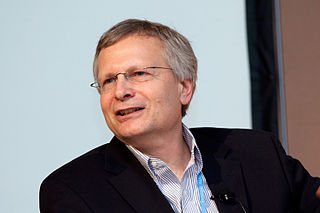A Quote by Alan Greenspan
The problem is you cannot have free global trade with highly restrictive, regulated domestic markets.
Related Quotes
Unlike national markets, which tend to be supported by domestic regulatory and political institutions, global markets are only 'weakly embedded'. There is no global lender of last resort, no global safety net, and of course, no global democracy. In other words, global markets suffer from weak governance, and are therefore prone to instability, inefficiency, and weak popular legitimacy.
The problem isn't that conservatives are wrong about the efficiency of markets or the creativity of enterprise. It's that they have made false idols of both, usually without acknowledging that markets work best when well regulated, that private enterprise cannot meet every human need, that government has always played a critical role in our economy, and that the profit motive can be socially and environmentally destructive as well as dynamic.





































